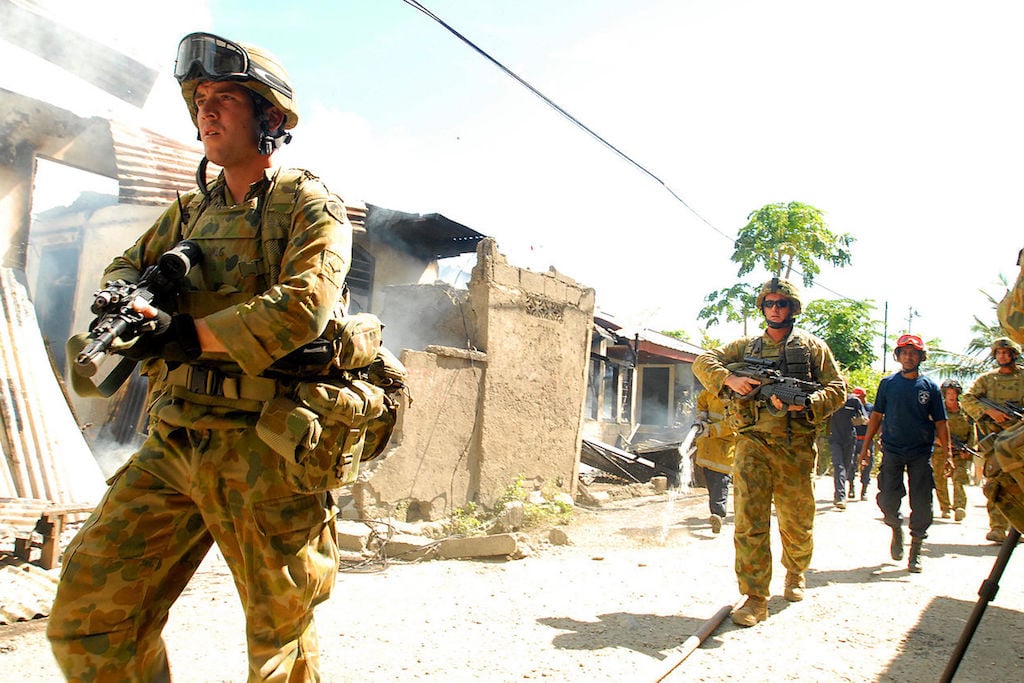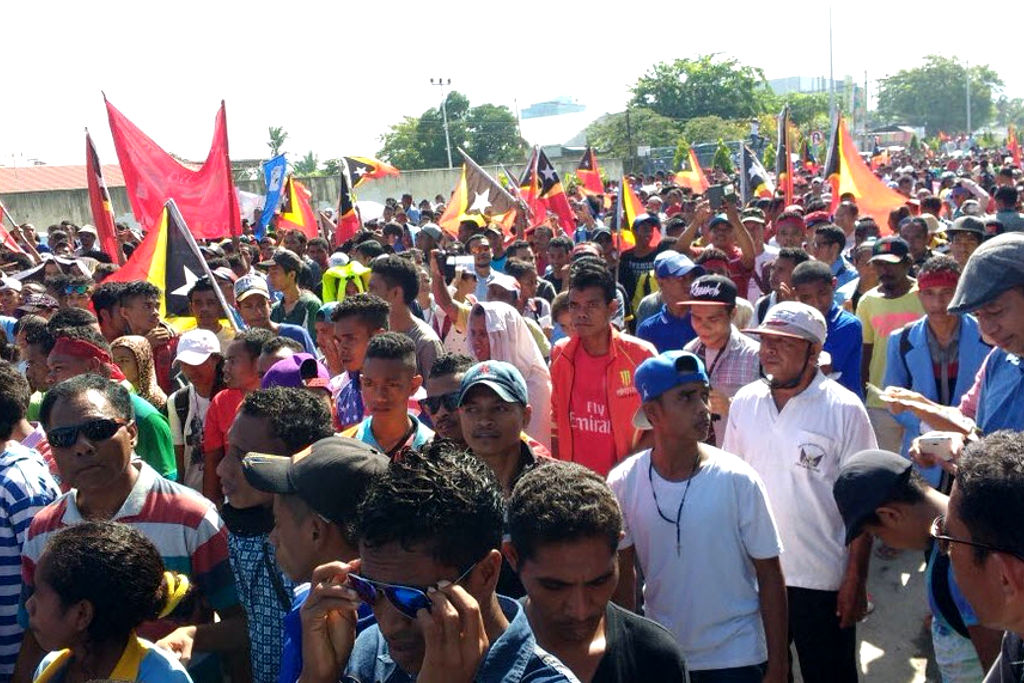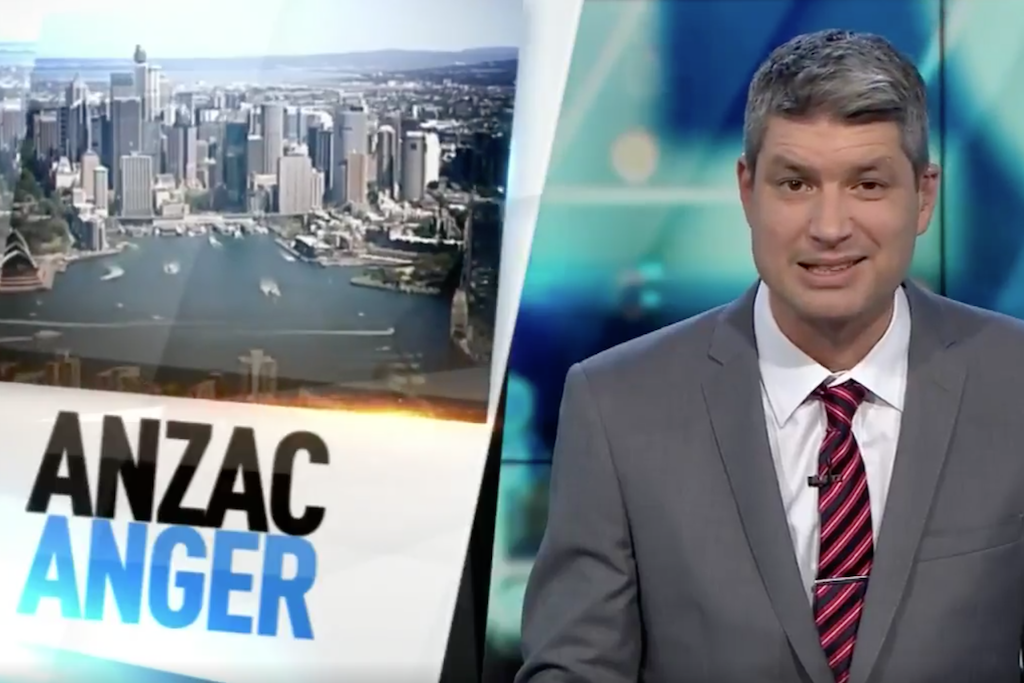Spying Scandals And Oil Fields: Australia’s History Of Strong-Arming Its Impoverished Neighbour
Australia is not the good guy in our region.

After nearly two decades of negotiation Australia and Timor-Leste have finally signed a deal formalising the maritime boundary between the two nations. The agreement marks a major milestone in relations between the neighbours, which have been strained since Timor-Leste gained independence in 2002.
But it hasn’t been an easy journey. The lengthy negotiations have been marred by accusations of spying, bad-faith, and the legacy of Timor-Leste’s struggle for independence.
The Timor sea border across the top of the Northern Territory and Queensland has been hotly disputed due to the wealth of gas and oil reserves hidden in its seabed. While it’s a landmark deal, it’s still not fully finalised, and the division of lucrative mining royalties worth tens of billions of dollars is yet to be resolved.
Questions over where oil will be refined are a major sticking point, while Timor-Leste still distrusts Australia over a spying scandal which erupted in 2012. The case embarrassed Australian negotiators and infuriated the Timorese delegation who took Australia to the International Court of Justice.
What’s This New Deal All About?
The signing of the treaty in New York this week is the finalisation of two years of negotiations between Australia and Timor-Leste, but the dispute goes much further back than that. Defining the maritime boundary has always been fraught, with massive, and some as yet unexplored, oil fields found in the waters between the two countries.
For Timor-Leste, these difficulties have been magnified by a 20th century dominated by independence battles. First against Portugal in 1975 and then again against Indonesia, which invaded almost immediately, replacing Portugal as occupier, in a long-running occupation which culminated in a bloody and tumultuous, but ultimately successful, independence fight at the end of the century.
Indonesia and Australia established a joint development zone in the 1970s which saw a 50-50 revenue share for all oil and gas extracted from the seabed. While this agreement pushed off defining a maritime border, it did work for the next 25 years — at least in the eyes of the Indonesian and Australian governments. The Timorese were less convinced, so when the Indonesia-Australia agreement dissolved after they gained independence, much of the next two decades has been dedicated to getting a fair deal.
What Does The Deal Mean For Timor-Leste?
The initial Timor Sea Treaty in 2002 kept the joint development zone and saw revenue break 90-10 for Timor-Leste, but it still didn’t resolve the permanent boundary issue or who owns rights to the Greater Sunrise oil fields, which are estimated to be worth around $53 billion. The next two decades saw a lot of negotiating but little concrete development, leading Timor-Leste to pull the pin and push for mandatory arbitration at the Hague two years ago.
For Timor-Leste, this deal could be huge. The country is one of the poorest in the region and has long argued a fairer boundary would go a long way in alleviating poverty. Oil and gas makes up 95 percent of its overall revenue, but with demand dropping globally this might not be the miracle cure the government is hoping for.
Australia’s Dirty Game
Australia hasn’t come out of the negotiating process looking particularly good. Often described as a “David versus Goliath” battle even in local media, Australia has faced accusations of “bullying” the minnow next door and has been the target of many demonstrations in Dili over the years. And it’s hard to disagree after revelations of a spying scandal broke in 2012.
An Australian Secret Intelligence Service (ASIS) officer turned whistleblower known only by the moniker Witness K said an Australian aid worker had been used to plant bugging devices in Timorese parliamentary offices back in 2004. The recorded conversations were then found to have been used by the Australian government to influence negotiations of a treaty signed in 2006. The result of those negotiations was an unfair treaty favouring Australia and prompted criticisms from Western allies including the US.
Relations fractured deeply after the revelations. Timor-Leste launched a case against Australia in the International Court of Justice saying the Australians had an unfair advantage during negotiations. This case was eventually dropped by Timor-Leste in early 2017 as a sign of ‘good faith’ ahead of the latest round of talks.
Despite officially being a closed case, the scandal still casts a dark shadow on relations and at home as coverage of the murky work of ASIS develops. A Guardian report last week revealed Witness K is effectively ‘under house arrest’ after having his passport seized by Australian authorities shortly before he was to leave for the Hague in 2013 to testify in the case.
It’s Not Over Yet
Still, accusations of Australian maleficence in negotiations persevere. Xanana Gusmao, who has been prime minister, president and now chief negotiator of the Timor-Leste delegation, has accused Australia of ‘colluding’ with oil firms over the still unresolved question of where oil from the fields will be refined. ABC has published excerpts of a letter from Gusmao to the United Nations Conciliation Commission where he says: “Australia’s offer may appear generous [but] it amounts to around a week’s worth of revenue.”
The question of on whose land refinement will occur is likely to be tougher still. Both countries argue it is in their interest to have on-shore refinement and neither seem happy to budge. Australia says it will break revenue 80-20 favouring Timor-Leste if refining is done in Darwin, while Timor-Leste says it is happy with 70-30 if done at home. Gusmao says revenue from the oil will be only nominal if done on Australian land, tipping another messy round in the long-running fight.
What Happens Now?
Australia and Timor-Leste had enjoyed strong relations in the aftermath of the independence fight in the early 2000s, with Australia deeply involved in the rebuilding and conciliation processes. If it was hoping the signing of the new agreement would see a return to robust relations, it may be premature as Gusmao’s comments show.
Writing for The Conversation this week, Australian National University international law expert Donald Rothwell says we’re likely to also see eventual future negotiations between Timor-Leste and Indonesia, whose maritime boundary reaches into the waters. Relations between Timor-Leste and its former occupier Indonesia have strengthened remarkably since the conflict 20 years ago with Indonesia now among the biggest supporters of the country in regional forums.
But Australian negotiations have taught Timor-Leste a tough lesson in international relations and will not be taking chances.
–
Erin Cook is a freelance journalist based in Jakarta covering Southeast Asia politics and curating the weekly Dari Mulut ke Mulut newsletter.
–
Feature image via Wikimedia

